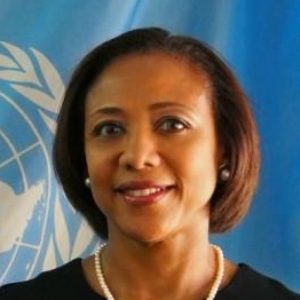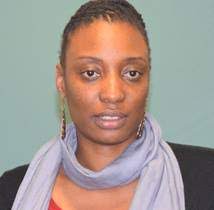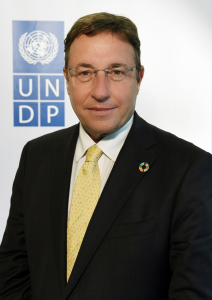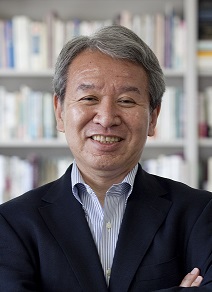The Advisory Board on Human Security (ABHS) is an independent advisory group comprised of up to 10 members, approved by the UN Secretary-General, with a deep commitment to the advancement of human security.
The ABHS was established to advise the Secretary-General on:
- The strategic orientation of the UN Trust Fund for Human Security (UNTFHS);
- Methods to increase the impact of programmes and activities funded by the UNTFHS;
- Ways to promote and disseminate the human security approach and deepen its understanding and acceptance worldwide, including application of human security to key global priorities.
The ABHS also provides strategic vision and guidance to the UN Human Security Unit in its management of the UNTFHS. In this regard, the ABHS:
- Provides advice on the Guidelines of the UNTFHS and periodic revisions;
- Recommends methods for promoting the impact, ensuring transparency, and raising the visibility of UNTFHS programmes and other activities;
- Reviews the performance and management of the UNTFHS, including reporting and evaluating the results achieved.
Current members of the ABHS are:

KNUT VOLLEBAEK, CHAIR
Ambassador Knut Vollebaek is a former Norwegian Ambassador to the United States of America (2001-2007) and former Minister of Foreign Affairs of Norway (1997-2000). Since 2013, he has headed the Norwegian Government’s Commission on Norwegian Travelers and served as a Commissioner on the International Commission of Missing Persons.

María Fernanda Espinosa Garcés
María Fernanda Espinosa Garcés served as the President of the seventy-third session of the General Assembly, bringing more than 20 years of multilateral experience in international negotiations, peace, security, defence, disarmament, human rights, indigenous peoples, gender equality, sustainable development, environment, biodiversity, climate change and multilateral cooperation. She has also served Ecuador as Minister of Foreign Affairs (twice), Minister of National Defence, and Coordinating Minister of Natural and Cultural Heritage.

Michelle Gyles-McDonnough
Ms. Michelle Gyles-McDonnough is the Director, Sustainable Development Unit, Executive Office of the Secretary-General at the United Nations, New York. Throughout her career, Ms. Gyles-McDonnough has practiced privately as a lawyer, and served as advisor to the Secretary-General of the Organization of American States.

Shuvai Busuman Nyoni
Ms. Shuvai Busuman Nyoni is the Executive Director of the African Leadership Centre (ALC), Nairobi, Kenya, and a gender, peace and security practitioner and researcher. The ALC is a research and training initiative that seeks to contribute to Africa’s long term social and economic security and development terrain by training and mentoring the next generation of African leaders as well as through rigorous research and knowledge generation.

Amy Pope
Amy Pope became Director General of the International Organization for Migration (IOM) on 1 October 2023, bringing a wealth of experience in addressing complex migration issues and passion for changing the global narrative about people on the move. She is the first woman to hold the post in IOM’s 73-year history.

Achim Steiner
Mr. Achim Steiner became UNDP Administrator on 19 June 2017 and will serve for a term of four years. Mr. Steiner is also the Vice-Chair of the UN Sustainable Development Group, which unites 40 entities of the UN system that work to support sustainable development.

Yukio Takasu
Mr. Yukio Takasu has been appointed by the UN Secretary-General as Special Adviser on Human Security successively since 2010. Mr. Takasu leads the UN’s advocacy efforts on mainstreaming human security, including advancing the implementation of the 2030 Agenda and the Sustainable Development Goals.

Akihiko Tanaka
Dr. TANAKA Akihiko is President of the Japan International Cooperation Agency (JICA). Before assuming the present post, he was President of the National Graduate Institute for Policy Studies (GRIPS), Japan.
